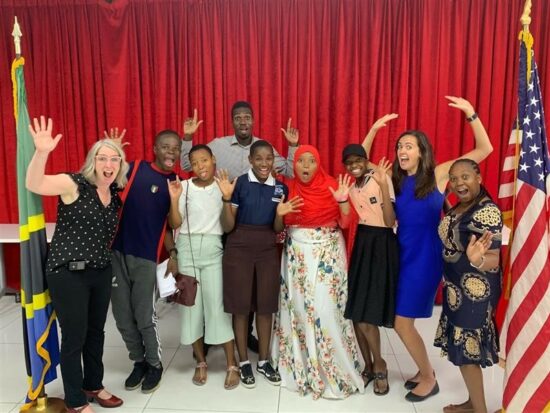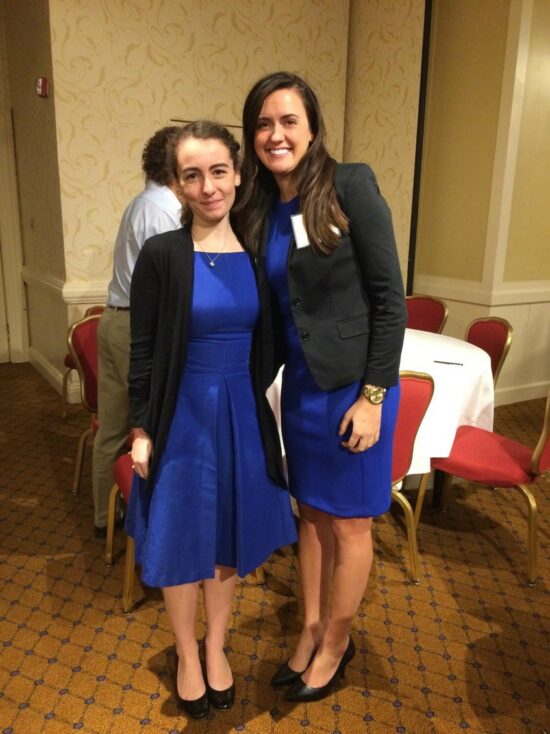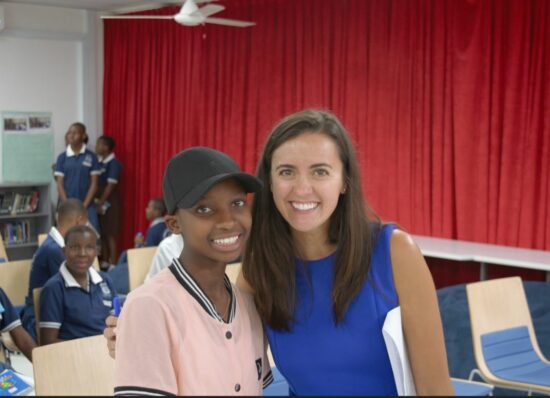By Patricia Preston, Executive Director, Vermont Council on World Affairs

Patricia (second from right) organized an October 2019 professional development summit in Tanzania for 50 Pan-African Youth Leadership participants, which included five Tanzanian students who had previously traveled to Vermont.
I count myself among the innumerable women whose life changed forever because of citizen diplomacy and exchange programs.
My first experience abroad came alongside my first taste of fundraising: bottle-drives, bake sales, and selling candy bars, all of which led me to an unknown culture with new people and practices. This trip set into motion my lifelong commitment to exchange and citizen diplomacy work.
My story is not unique; just this month I spoke with a new member of the Vermont Council on World Affairs (VCWA) who described how the entire trajectory of her life changed because of a theatre program exchange to Yaroslavl, Russia.
The VCWA, and more broadly the entire Global Ties Network, work to provide exchange programs that bring people together across borders, cultures, and belief systems. We work on a variety of initiatives that seek to promote people-to-people diplomacy through academic, cultural, private sector, and professional exchange programs. These opportunities not only build women and girls’ networks, but also promote a greater tolerance and understanding of all people.
Whether it is an exchange trip to Russia or a visitor from abroad coming to your classrooms, citizen diplomacy is a tool to cross barriers. Through exchange programs, we can cultivate our interns, work with women in our communities, and encourage women’s participation in leadership roles and decision-making. The more our organizations work on women and girls’ participation in leadership exchange programs and encourage leadership roles within our organizations, the more we can challenge gender stereotypes and break down discriminatory attitudes.

Patricia (right) with mentee and former VCWA intern Katherine who continues a career in international development, most recently, in Morocco.
I have witnessed and lived first-hand exchange as a tool to empower women and girls both domestically and abroad. Just as recently as October 2019, I had the opportunity to travel to Dar es Salaam, Tanzania to work on a reverse exchange with our Pan-African Youth Leadership participants. This program was designed to work with young women and girls’ from around the world to build professional networks, develop a sense of identity, and access new opportunities. I imagine I would not be in a leadership position at the VCWA had I not been afforded similar opportunities at age 13. It changed my worldview and my life path.
Just as I have reimagined my fundraising initiatives from bake sales to annual dinners, I encourage all of us to reevaluate our work, specifically our role in shaping the next generation of female identifying leaders. Let us work collectively as a network to strengthen our preexisting work and further bolster women and girls’ equality and empowerment.

Patricia (right) with host daughter Jacqueline reconnect in October 2019.
